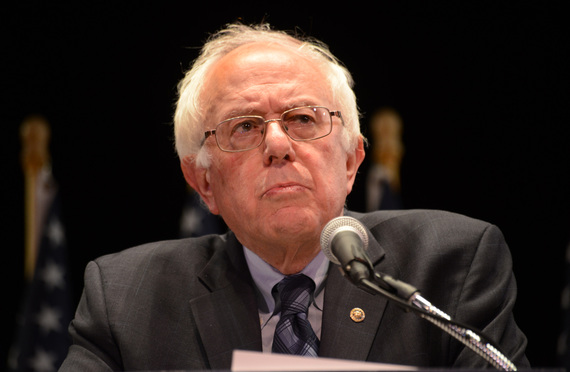 Senator Bernie Sanders at a town hall on January 5, 2016.
Senator Bernie Sanders at a town hall on January 5, 2016.
Advocates of defined-benefits plans and proponents of defined-contribution plans once again squared off at a Senate committee hearing last week. And, as usual, no consensus developed about the best direction to go, as policymakers struggle to find ways to increase Americans' retirement savings.
As he started the hearing, Senate Health, Education, Labor & Pensions Committee Chairman Sen. Bernie Sanders released a report on the problems facing the retirement system. "The report finds that defined-benefit plans, which provide workers with monthly pension payments, are the most cost-efficient way to provide a secure lifelong retirement," Sanders said.
Recommended For You
However, committee ranking Republican Sen. Bill Cassidy of Louisiana rejected that notion. "The singular focus of this hearing on promoting the defined-benefit system is a bit puzzling," he said. "It seems to prescribe an agenda that is, respectfully, outdated and disconnected from reality."
Cassidy said that under defined-contribution plans, workers own their retirement savings. "No matter what happens to a worker's current or previous employer, their retirement funds are secure," he added.
As is always the case, witnesses brought their own ideas to the committee.
In a typical defined-contribution plan, participants pay retail marketing, management, and annuitization costs, Teresa Ghilarducci, a professor at the New School for Social Research in New York, told the committee. She added that in defined-benefit plans, participants pay wholesale, meaning more of their savings goes to retirement benefits.
"A sane set of choices in a self-directed DC [defined-contribution] plan can mimic the efficient low-cost portfolios in pooled DB [defined-benefit] funds and ]substantial reduction of a worker's risk of making unwise or unlucky investment decisions," she added. "Also, DB plans have a long-term horizon—to mimic this, DC plans must steer workers into long-term investment to ride out bad market risks.
"Plans with DB-like features work best because they prevent leakage and have automatic enrollment," Ghilarducci added.
However, Rachel Greszler, a senior research fellow at The Heritage Foundation, said Americans do not face a retirement crisis. She defended defined-contribution plans.
"Contrary to the narrative accompanying this hearing and frequent media headlines, Americans do not face a retirement crisis—at least not one attributable to the expansion of defined-contribution plans and the decline in defined-benefit plans," she told the committee. She added that retiree income, households' total retirement savings, participation in retirement savings plans, and retirees' reported financial well-being are all high by historic standards.
"One benefit of defined-contribution plans is that workers can control how their money is invested," Greszler told the committee. She added that they also have access to financial advice, that savings can be passed on to heirs, and participants have constant knowledge of how much money is in their accounts. That, she said, enablesthem to project how much money the accounts will provide in retirement.
She added, "Policymakers should enact universal savings accounts, which would allow workers to save in one simple savings account that they could withdraw from, without penalty, for any expected or unexpected event throughout their lifetimes."
Dan Doonan, executive director of the National Institute on Retirement Security, told the committee that almost half of private-sector employees between the ages of 18 and 64 do not have the option to save for retirement at work. "This is important to note because a wide body of research finds that payroll deduction is the key to helping households build retirement savings and establish retirement security," he added.
Doonan said that while 401(k) plans are an important part of the retirement equation, they never were designed to replace pensions.
From: BenefitsPRO
© Touchpoint Markets, All Rights Reserved. Request academic re-use from www.copyright.com. All other uses, submit a request to [email protected]. For more inforrmation visit Asset & Logo Licensing.



